Narva (Dagbladet): Narva is located in the far north-east of Estonia. Russian city in NATO. Just three hours east of the capital, Tallinn, everything is different from the rest of NATO countries, Estonia.
About 95 percent of the population of over fifty thousand people speak Russian as their mother tongue. Old people speak only Russian.
They receive news from Russian TV channels, and President Vladimir Vladimirovich Putin is in no way an insult. In Narva, they are tired of newspaper reporters and TV crews having questions about the city.

– More vulnerable now
Husband
Before the invasion of Ukraine, fear prevailed in Estonia. They feared a Russian invasion, and that Putin would claim the border region in the northeast, where the population is of Russian origin and barely speaks Estonian or English.
Dagbladet meets the couple Artem Nikolaienko (18) and Anagtagja Lauynska (19). They are both originally from Ukraine, but they don’t talk about it out loud.
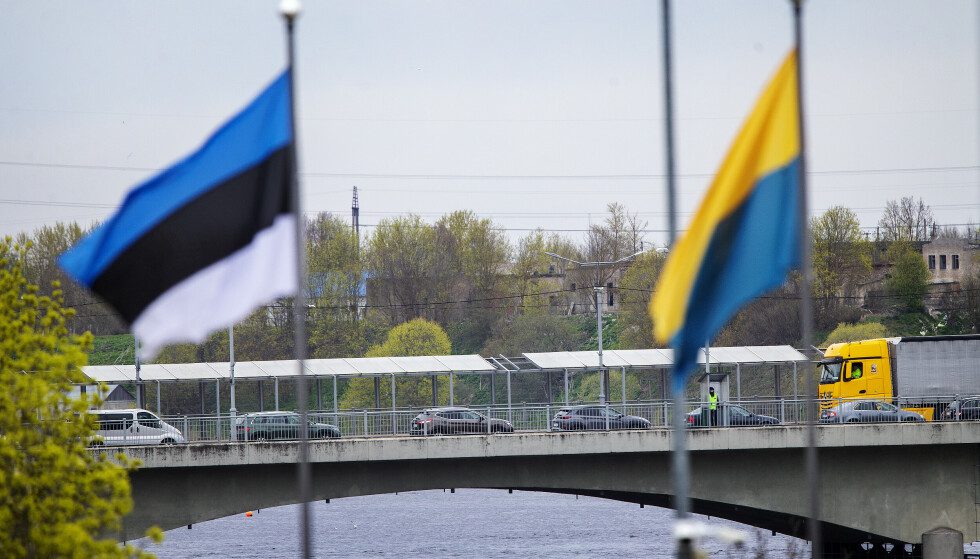
Border Town: Only a small river separates Narva in Estonia from Russia. The flag on the right is not Ukrainian, but the flag of the city of Narva. The Ukrainian flag flying elsewhere in Estonia cannot be seen in the border city. Photo: Henning Lillegård / Dagbladet
Show more
– Because my mother married Esther, we moved to Estonia two years ago, says Artem Nikolaenko.
His girlfriend Anagtagja came as a refugee a few weeks ago.
“The case of the road sector”
– It’s a bit of a coincidence that we now live in Narva. Most of them are Russians, says Artem Nikolaenko, and many of them support Putin and the war in Ukraine.
He and his girlfriend aren’t afraid that something will happen to them in Estonia, but they don’t think Narva is the city they want to take root in.
– Many residents here believe in Russian propaganda, and that Ukraine is a country of thieves with the Nazis. The young Ukrainian says that the older part of the population in particular is suspicious of Ukraine, the West and NATO.
The couple have dreams, and Anagtagja especially wants to go to Barcelona.
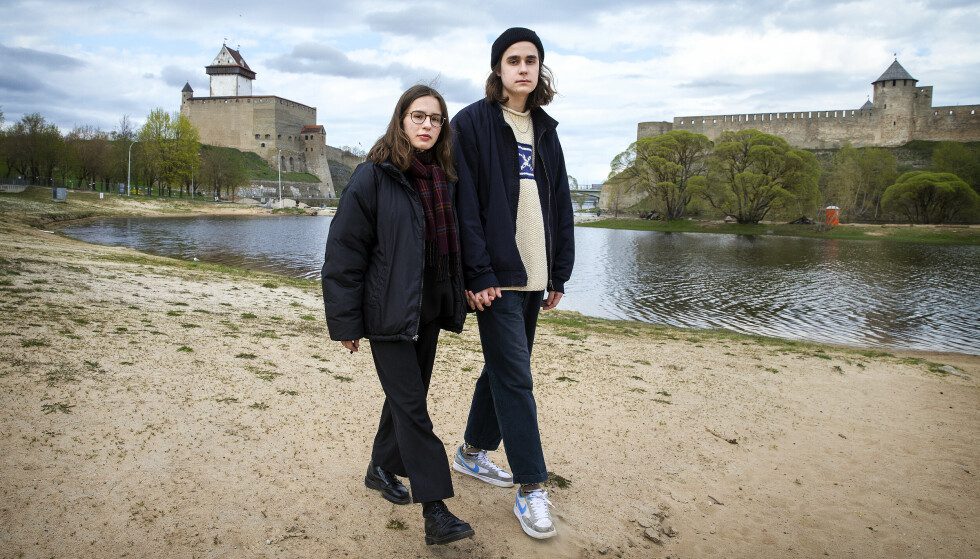
Done: Ukrainians Anagtagja Lauynska and Artem Nikolaienko took refuge in the Russian city of Narva in Estonia. – It’s a bit strange to be here in Narva, so many of those who live here support Putin and advocate for the war, says Artem Nikolaenko. The medieval castle on the left is Estonian, while the castle on the right is Russian. Photo: Henning Lillegård / Dagbladet
Show more
Originally, Anagtagja and Artem come from the third largest city in Ukraine – Odessa. The coastal city on the Black Sea, which in recent days has been subjected to heavy Russian artillery bombardment.
– a stranger
– We called and spoke with both family and friends at home in Odessa. It hurts to know what they are exposed to now. It would also be strange to be here in Narva, when many of those who live here support Putin and defend the war, says Artem Nikolaenko.
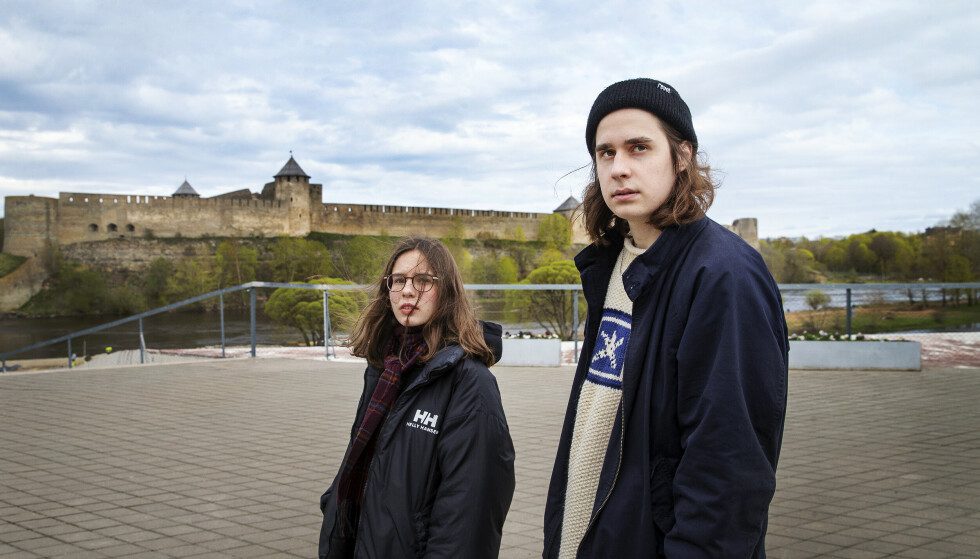
Want to continue: Anagtagja Lauynska and Artem Nikolaienko want to travel away from Narva. – We do not “know” that we came from Ukraine. Artem Nikolaenko says that many here in Narva support Putin. Photo: Henning Lillegård / Dagbladet
Show more
A few hours before Dagbladet met the couple, we spoke to a woman who works for the Swedish consul in Narva.
She is kind and respectful at the same time, but she does not want to be interviewed. The woman suggests several other things she thinks she can tell us about Narva. But none of them wanted to talk.
But before we walk in, the woman says she doesn’t really want the Ukrainians to live in Narva.
– There are criminals and Nazis in Ukraine, she says.
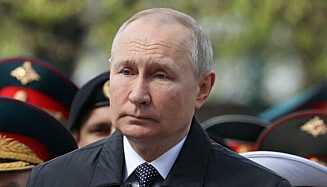
Putin’s new pieces
I felt ignored
In Narva, all street names are in Estonian.
No Cyrillic letter can be seen on street signs in Narva. prohibited. A stark contrast to Kirken Norwegian – where ten percent of the population speaks Russian as their mother tongue – the municipal council has decided that street signs should be in both Norwegian and Russian.
Alexey Ivanov, one of the few in town who speaks English. Nor does he hide the fact that a large part of the population of Narva would have been happy if Putin had sent his troops to Narva.
– Ivanov asserts that in Narva we had experience that the authorities in Tallinn neglected us for many years.
Fear of Putin
In the city center goes the main road of Russia – E20. Down the river, a few meters from the town hall and the city university, is the border station.
Although diplomatic relations between Russia and NATO countries cooled after the invasion of Ukraine on February 24 this year, cross-border traffic between Estonia and Russia is almost normal.
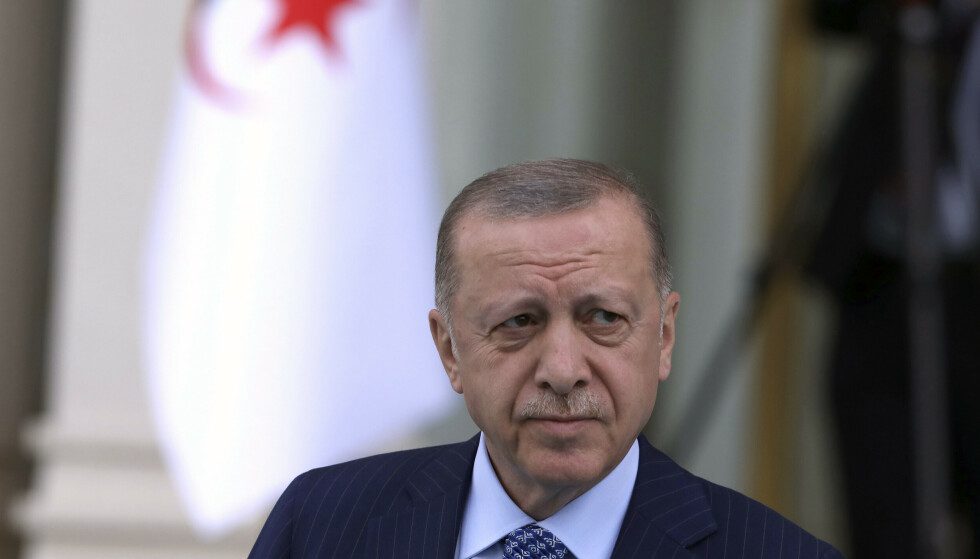
Erdogan expert: – Talking to voters
Trailers line up to cross the border, and Russians and Estonians cross the river separating Narva and the Russian border city of Ivangorod as usual.
When Putin invaded eastern Ukraine in 2014 and annexed Crimea, Putin portrayed himself as the protector of Russian-speaking minorities.
Then declare the following:
Millions of Russians slept in one country and woke up abroadreferring to the fall and dissolution of the Soviet Union in December 1991.
Which in turn led to fears that Russian troops could be sent to the “Russian” part of Estonia.
– It’s not easy being Esther
– Most of us have Estonian and Russian blood in the spring years. Although 30 years have passed since the Soviet era, Russian is the main language in schools, says Renee Abramson, who works at the Narva Theatre.
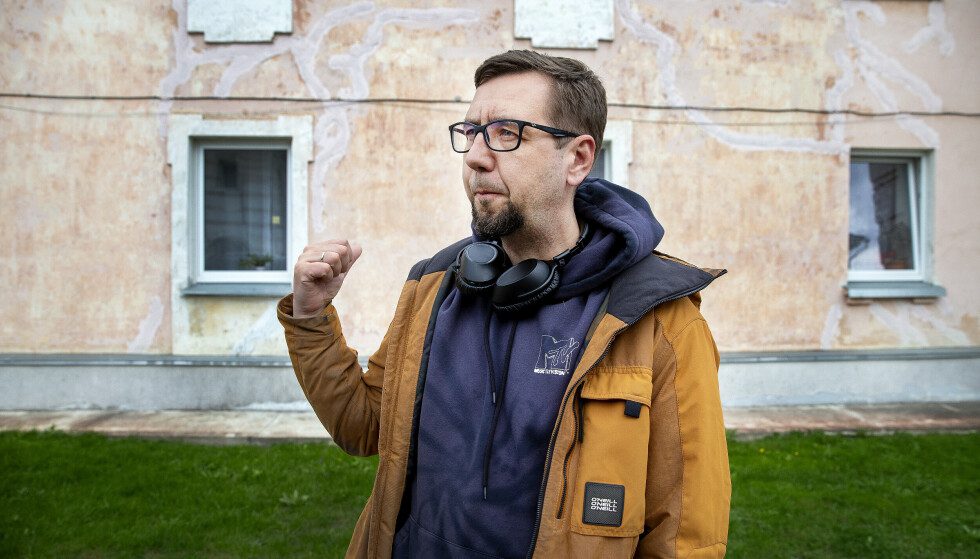
Difficulty: – It’s hard to be an Ester in Narva, if you don’t speak Russian, says Renee Abramson. Photo: Henning Lillegård / Dagbladet
Show more
Abramson admits that being Esther in Narva isn’t easy.
Estonian authorities previously dismissed concerns about Narva’s future, while fighting for Narva’s further incorporation into the rest of Estonia. In a nationwide survey conducted in 2019, 90% of Estonian-speaking countries supported NATO membership. Only 32 percent of Russian-speaking people wanted Estonia to be part of the alliance.
Trust NATO
Estonian officials explained to the well-known American magazine “The Atlantic” that it is no coincidence that Estonia deploys troops in Afghanistan. The country was also one of the few that spent 2 percent of its gross domestic product (GDP) on defence.
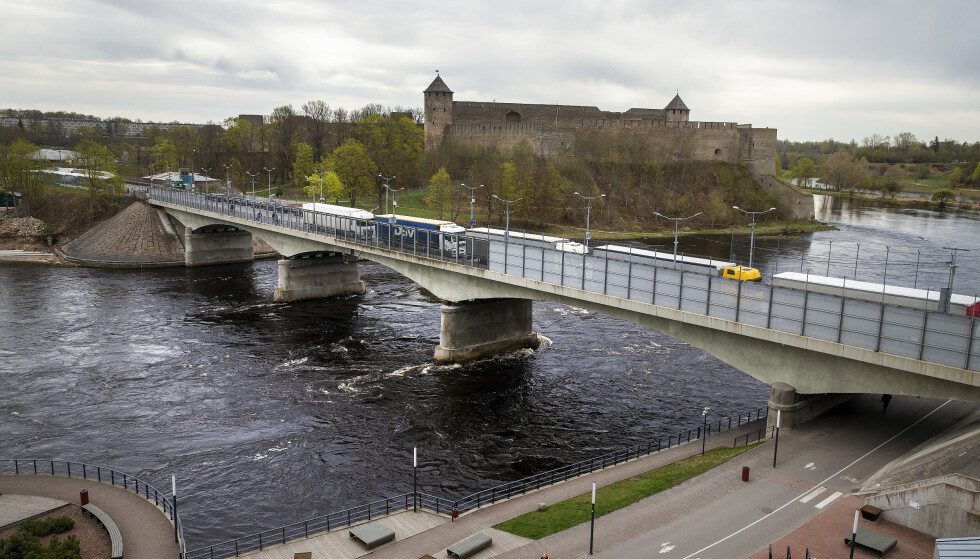
Border River: Traffic across the border river that separates Estonian Narva and Russia’s Ivangorod is running as usual, despite sanctions against Russia. Photo: Henning Lillegård / Dagbladet
Show more
Estonia expects NATO and the United States to come to the rescue. Should Putin decide to “rescue” the Russian-speaking people in the Narva region?

